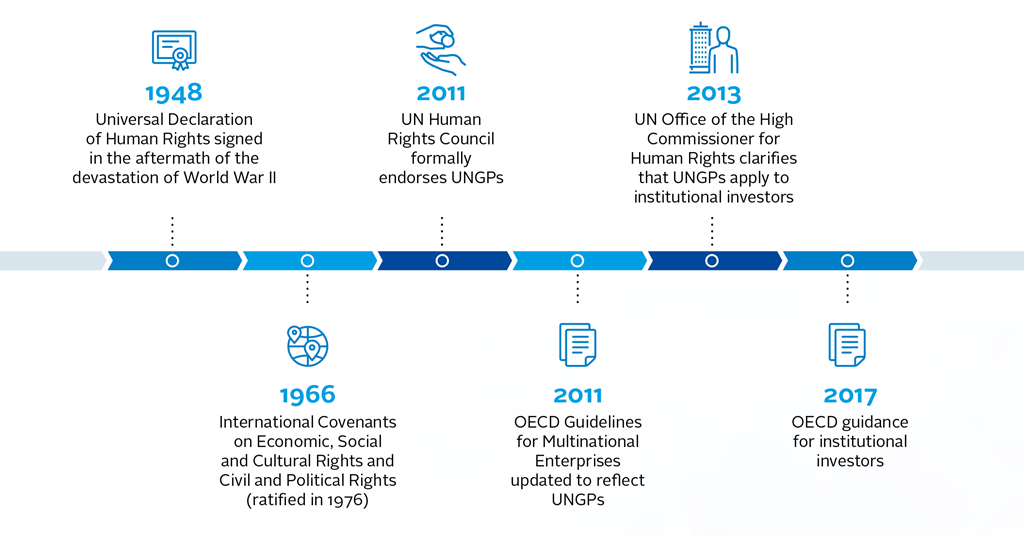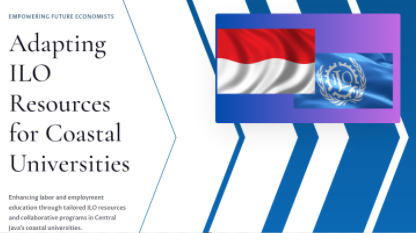- Module 1: Introduction to Decent Work
- Definitions and importance.
- International standards (ILO) and Fundamental Principles and Rights of Workers.
- Case studies of decent work practices.
- Module 2: Business and Human Rights Framework
- UN Guiding Principles on Business and Human Rights.
- Corporate social responsibility (CSR) and sustainability.
- Case studies of human rights in business.
- Module 3: Coastal Economy and Labor Rights
- Specific challenges in coastal regions (e.g., fishing, tourism, shipping).
- Environmental impacts on labor conditions.
- Local labour laws and regulations.
- Module 4: Practical Skills and Advocacy
- Workshops on implementing decent work practices.
- Human rights advocacy and activism.
- Project-based learning and community engagement.
- Delivery of activities
- Assessment at UNDIP and four coastal universities
- Adaptation and development of teaching curriculum
- Facilitate Training of trainers: lectures
- Field Visits: Visits to local businesses and communities.
- Online Resources: E-learning modules and virtual workshops for wider reach.
- Collaboration and Partnerships
- University Collaboration: Form a consortium of coastal universities for resource sharing and joint initiatives.
- Industry Partnerships: Engage local businesses for internships, guest lectures, and case studies.
- The Trade Union and NGO Collaboration: Partner with human rights organizations for expertise and advocacy training.
- Evaluation and Feedback
- Monitoring and Evaluation: Regularly assess the program’s effectiveness through feedback forms, surveys, and performance metrics.
- Continuous Improvement: Use feedback to refine and improve the curriculum and teaching methods.
- Implementation Plan
Phase 1: Planning and Development
- Conduct needs assessment.
- Develop curriculum and materials.
- Establish partnerships and collaborations.
Phase 2: Pilot Program
- Launch pilot program with selected universities and businesses.
- Collect feedback and make necessary adjustments.
Phase 3: Full Implementation
- Scale-up program to more universities and regions.
- Continuously monitor and refine the program.
Phase 4: Scaling and Sustainability
- Scale the program nationally and internationally.
- Establish a sustainable funding model.
- Create an alumni network for ongoing support and advocacy.

 Image courtesy of www.unpri.org
Image courtesy of www.unpri.org